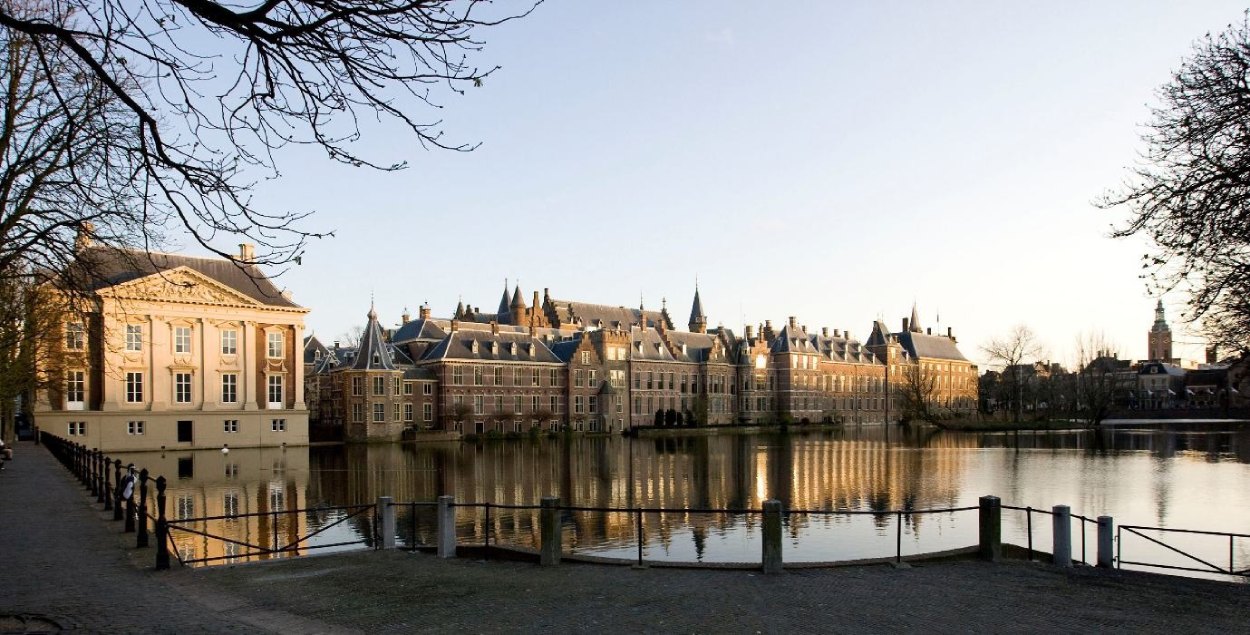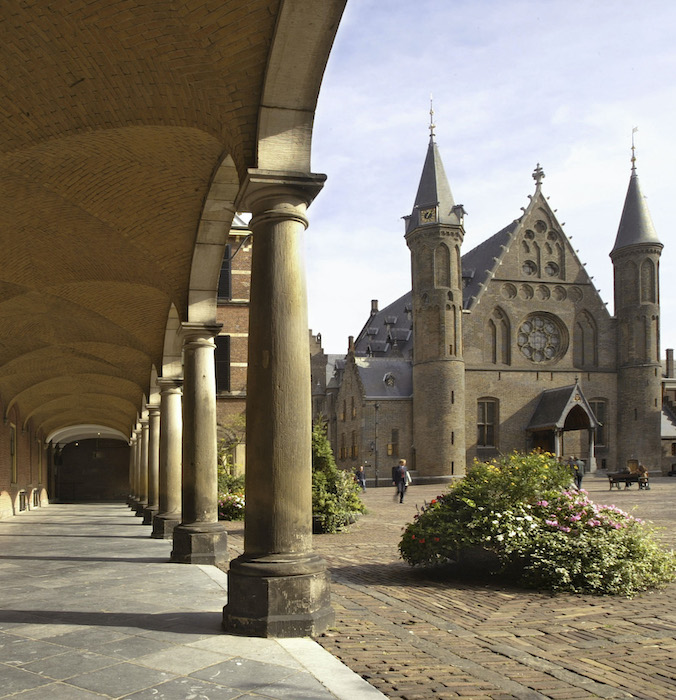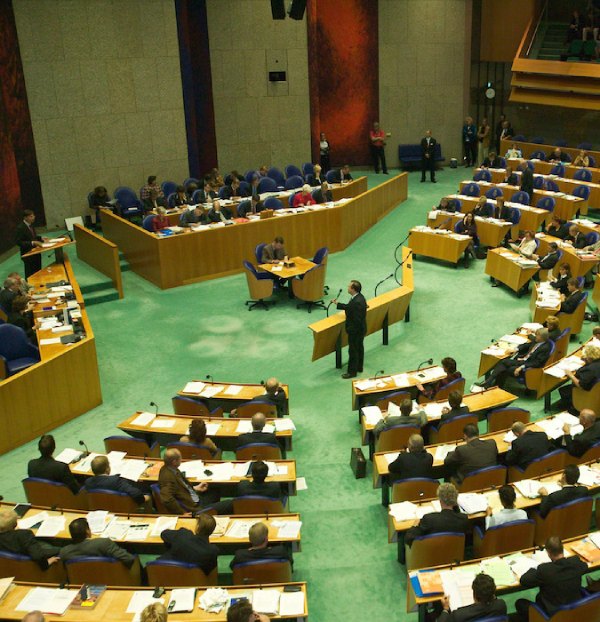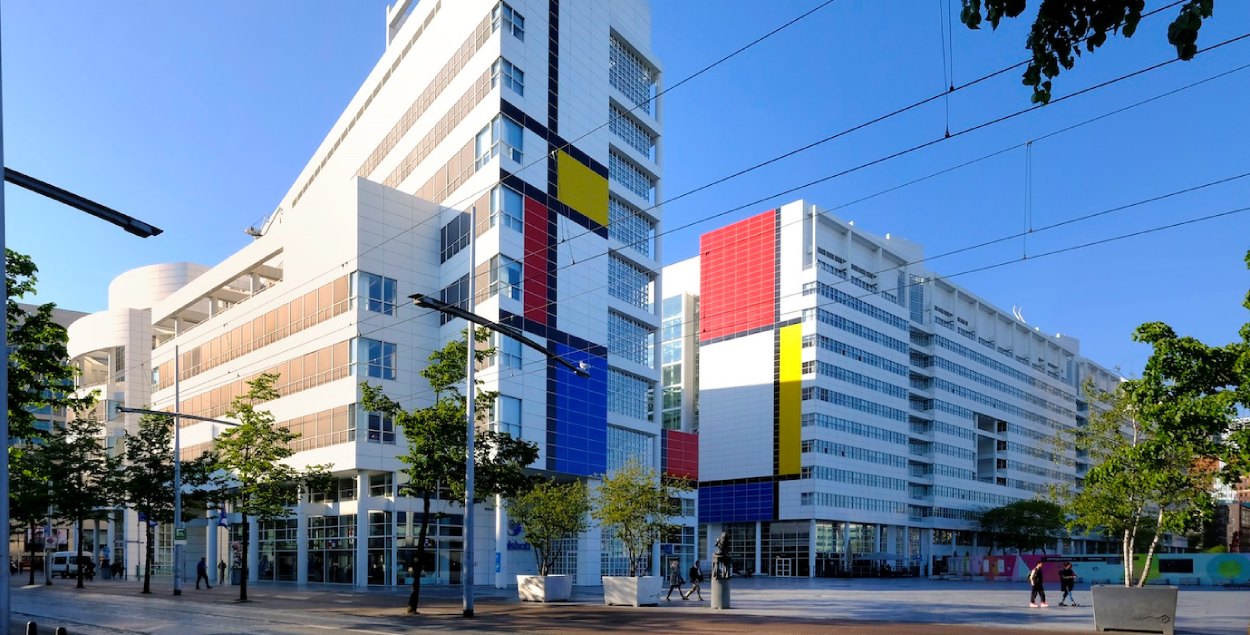Politics & Government
Quickly go to
- The head of state
- The head of government
- Political parties
- Other levels of government
- Discover what it's like to live in the Netherlands

The Netherlands has been a constitutional monarchy since 1815 and a parliamentary democracy since 1848, meaning that our central government is formed by a king or queen and a parliament consisting of ministers. The official head of state is the monarch, but this function is mostly representative and ceremonial. The king or queen holds no political responsibility. The current king of the Netherlands and nominal head of state is King Willem-Alexander of Orange-Nassau.
The king or queen is politically subordinated to the will of the parliament, the highest political organ of the country. The parliament, known in Dutch as the Staten-Generaal, consists of two chambers: the senate (Eerste Kamer) and the more influential house of representatives (Tweede Kamer).
The members of both chambers are elected by representative democracy. Every four years, national elections are held where people can vote for their political party of choice. The results decide who will hold the 150 seats of the House of Representatives. Based on the election results, a process begins where the parliament forms a Cabinet of Ministers and State Secretaries, which formulates and is accountable for the Government’s policies for four years. The Minister of General Affairs, or Prime Minister, presides over the Cabinet and is the government’s de facto head and spokesperson for this period.


The Netherlands has a multi-party system, which means that there’s a multitude of parties (often named by frustratingly similar abbreviations) that you can vote on during the elections and with which coalitions and cabinets can be formed. As the elections are decided by proportional representation, there are usually several parties that together form the government. Traditionally, the most dominant parties have been the VVD (Liberals), the CDA (Christian Democrats) and the PvdA (Labour). However, in the last decade, the political landscape has diversified a lot and bigger parties were forced to form coalitions with smaller and/or new parties. From parties that specifically stand for the rights of senior citizens or animals to those fighting for internet privacy or reformed Christians – there are both general and more niche or single-issue parties to choose from so chances are you’ll find one that generally aligns with your political views.

The elected Dutch parliament deals with matters on a national level and with international relations. There are also more local levels of government. The second-highest level of government are the twelve provinces of the Netherlands. The provinces exist to translate the national policies of the central government into a regional context. They are tasked by the central government to deal with environmental management, cultural affairs, spatial planning, transport and other matters.
The province mediates between the central government and the municipalities, the third level of government and the one that’s closest to the citizens. The Netherlands has more than 350 municipalities that deal exclusively with local affairs such as schooling, housing, welfare, water supply, sports, and recreation. The municipalities are formed by the municipal executives (the colleges of mayor and alderpersons) and the municipal councils, which consist of members of local parties and local branches of national parties. The central government chooses the municipal executives, and the council is formed by elections that are held every four years.